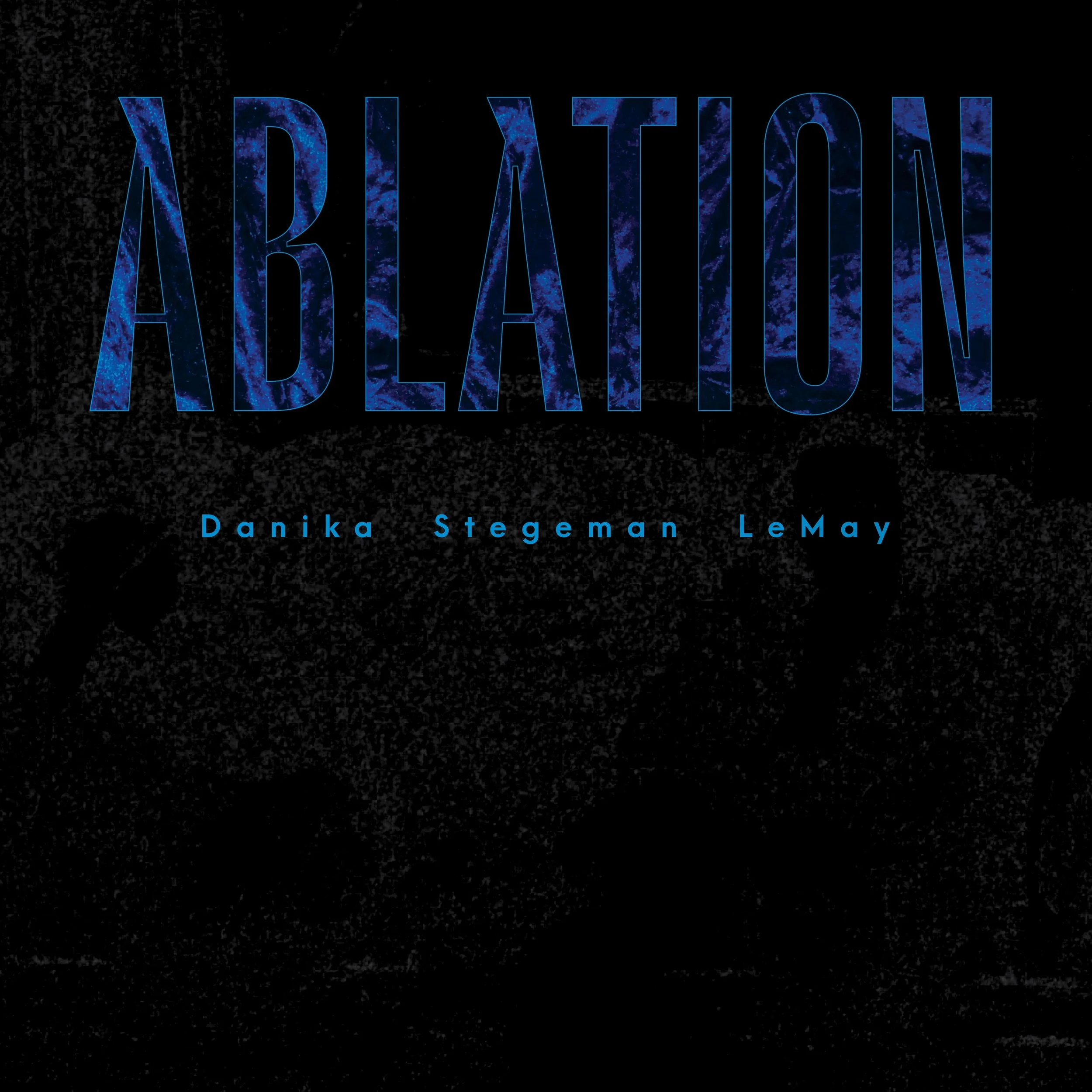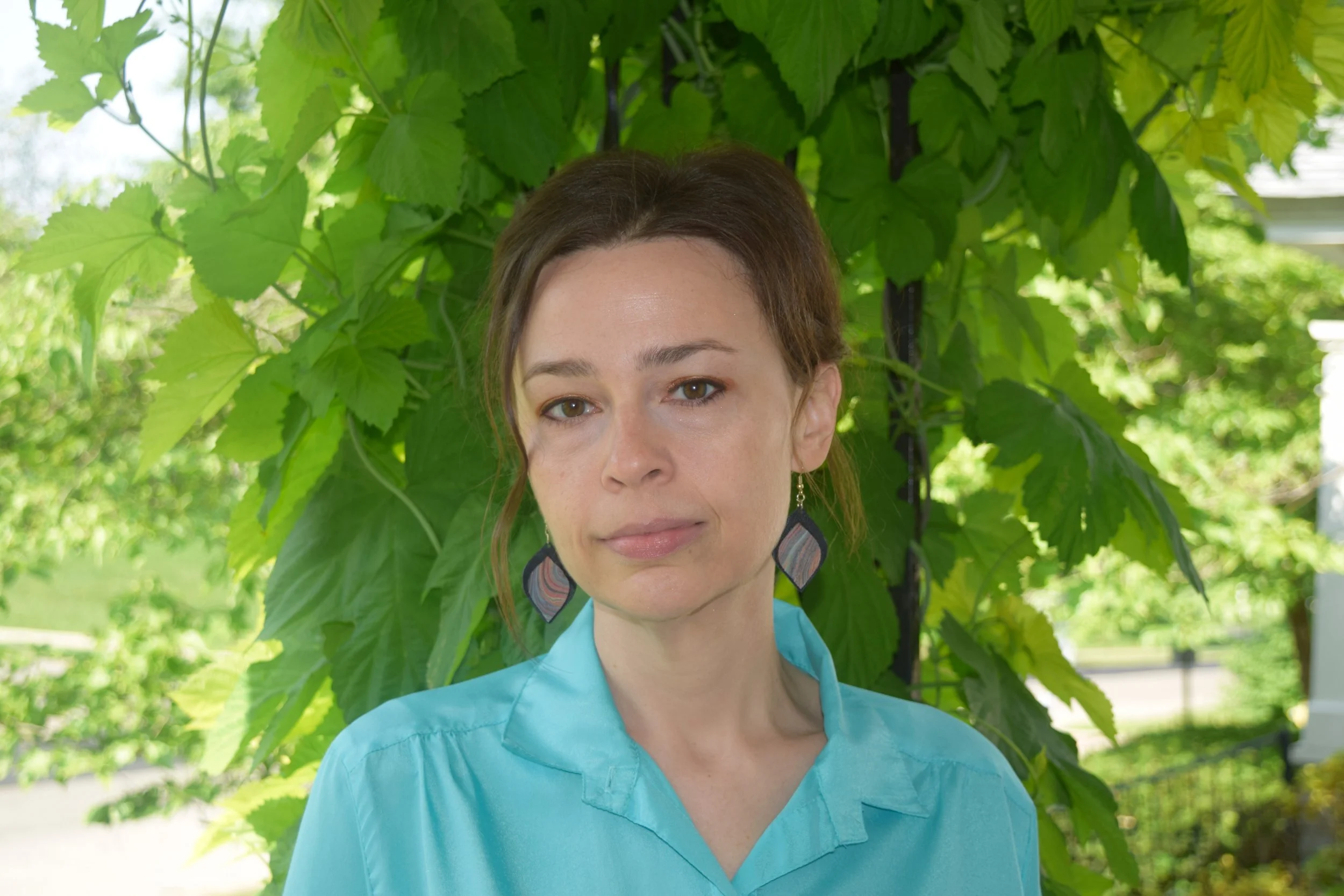ABLATION
Danika Stegeman
PUBLICATION DATE: November 01, 2023
ISBN: 9781948687652
PRICE: $34
PAGE: 154, 8 X 8, 70# COLOR
Ablation is an elegy to Stegeman’s mom, who died in 2020, and, simultaneously, a love letter to Stegeman’s young daughter. The book was written in the liminal spaces opened by birth, death, and trauma. It contains poems, hybrid text, images as windows and thread as a form of healing. The book’s materials coalesce and surface, waves washing along the thresholds of control and chaos, form and formlessness. These thresholds become points of divergence, where what’s essential is carried forward, where all else is transformed and unshored.
ABLATION is stunning in its inventiveness and shape, the touchability of both text and image combine to form a strikingly rich book. It was exhilarating to spend time with.
— Hanif Abdurraqib, author of A Little Devil in America
In ABLATION, Danika Stegeman finds a form, a ‘grief box’ to contain all the wounds and repairs we live and die through, their delicate debris—the torn and cut edges, pins and needles, buttons and string. This is a quiet yet viscerally felt book about pain and personal history, the ‘relentless’ work of time. ‘If I’m / haunted,’ she writes, ‘then I’m / loved.’”
– Elisa Gabbert, author of Normal Distance
I am reminded in reading Danika Stegeman’s ABLATION of another complex work of hybridity, Roland Barthes’ Camera Lucida, which like ABLATION has at its center the loss of a mother. Both writers use grief as a kind of lens to distort and focus, to clarify and recast, to theorize, trouble, and lament. But here is the work of a poet and not a philosopher, and we find a dense, beautiful lyricism carrying us forward, at once poignant, elaborate, and inventive, at once fragmented and whole. As in her first book, Pilot, this very contemporary verse brings to us anew ancient pleasures that are and have been poetry.
– Eric Pankey, author of Not Yet Transfigured
Danika Stegeman’s ABLATION is a (w)reckoning. I read it outside on a humid summer day in one sitting. The sky looked like rain. At times, I had to pause and close the book—some of the material is intense—intensely painful, vividly articulated—and yet, I couldn’t stop wanting to be in the air of these poems, in the art(fullness) of these poems, with the speaker of these poems. Near the end of the book, I suddenly felt raindrops, but then I realized it wasn’t raining—I was actually crying. Lyrical, ecstatic, and fearless, ABLATION is soaked in personal history, family trauma, and a formal dexterity that few poets writing today are brave enough to apply—especially in contexts (like this one) where they have something clear that they want to say/express. This is a masterful and incandescent sequence of poems—a book I will not forget and one I will recommend “to stop the world fluttering” and remind us of the power of Poetry.
— Matt Hart, author of Familiar
In ABLATION, Danika Stegeman builds vessels for her grief that open and close like night flowers. In the visible and invisible world of the mathematics of living and dying, Stegeman offers equations of isolation and invention, "If I'm / haunted then I'm / loved," and oblique architectures, "I paper / a world from slits / and folds. Glaciers are a forceful motif throughout, in their inexorable and impersonal advance, in their coldness and distance, and their epic, mostly submerged mirroring of life in motion. This book is "a hologram redoubling" bound with slippages, unfoldings, and, especially, through its aching attentiveness, a primal, burning love.
—Sun Yung Shin, author of The Wet Hex
ABLATION plunges the reader into the messy, aching, multifarious fact of a severed-and-not mother-daughter relationship. Defined by captivating and unnerving symmetries, each poem is a shattered window meticulously taped into a mandala. Scarred light pours through. What can I say? Stegeman has written this generation’s great elegy.
— Joe Hall, author of Fugue and Strike
If I’m / haunted, then I’m / loved…” writes Danika Stegeman in her breathtaking second collection, ABLATION. This book laments the loss and honors the memory of complicated love. But no, I wrote that wrong: love is not complicated, people are. This book is voiced and populated by people—mothers, siblings, sports stars—doing their imperfect best for one another on a planet we continually fail. Haven’t we all tried “desperately to protect the people [we] loved, with what magic, dark or light, [we] could muster”? Throughout these poems, form, fragment, and ephemera elucidate the glacial grief and joy of that work.
—Paula Cisewski, author of Quitter
Grief weaves a complicated web in Danika Stegeman’s ABLATION. While a spider works with threads of silk, Stegeman—with an equal deftness—entwines language into a complex and glimmering network. When any strand is touched, a reverberation is felt throughout the whole. “Trauma / passes across / generations. / This is / what’s meant by circulatory / system,” writes Stegeman , binding the physical, psychological, and emotional: body, mind, and heart. And it is a heart—that fist-sized muscle driving blood, that fist-sized muscle linked to love—pulsing at the core of Stegeman’s collection. ABLATION is a quiet, powerfully resonant book, using hybrid elements to demonstrate the overlapping immediacy of life and loss with the bizarreness of the grief that is born from the death of a parent. Guided by Stegeman’s skilled hands, readers of ABLATION will navigate the knotted pathways of shared familial history to emerge thrumming with sorrow and celebration of life.
—Jenny Irish, author of Lupine
Interviews/Reviews
Danika Stegeman: A Spiral of Questioning
About the Author: Danika Stegeman
Danika Stegeman’s debut poetry collection, Pilot (2020), was published by Spork Press.
She’s a 2023 recipient of a grant from the Barbara Deming Memorial Fund and recently spent a 2-week residency in Marathon, TX outside Big Bend National Park. Her video poem, “Then Betelgeuse Reappears” was an official selection for the 2021 Midwest Video Poetry Festival.
Stegeman received her MFA in creative writing from George Mason University where she was awarded the Heritage Fellowship. She currently lives in Roseville, MN. Her website is danikastegeman.com

